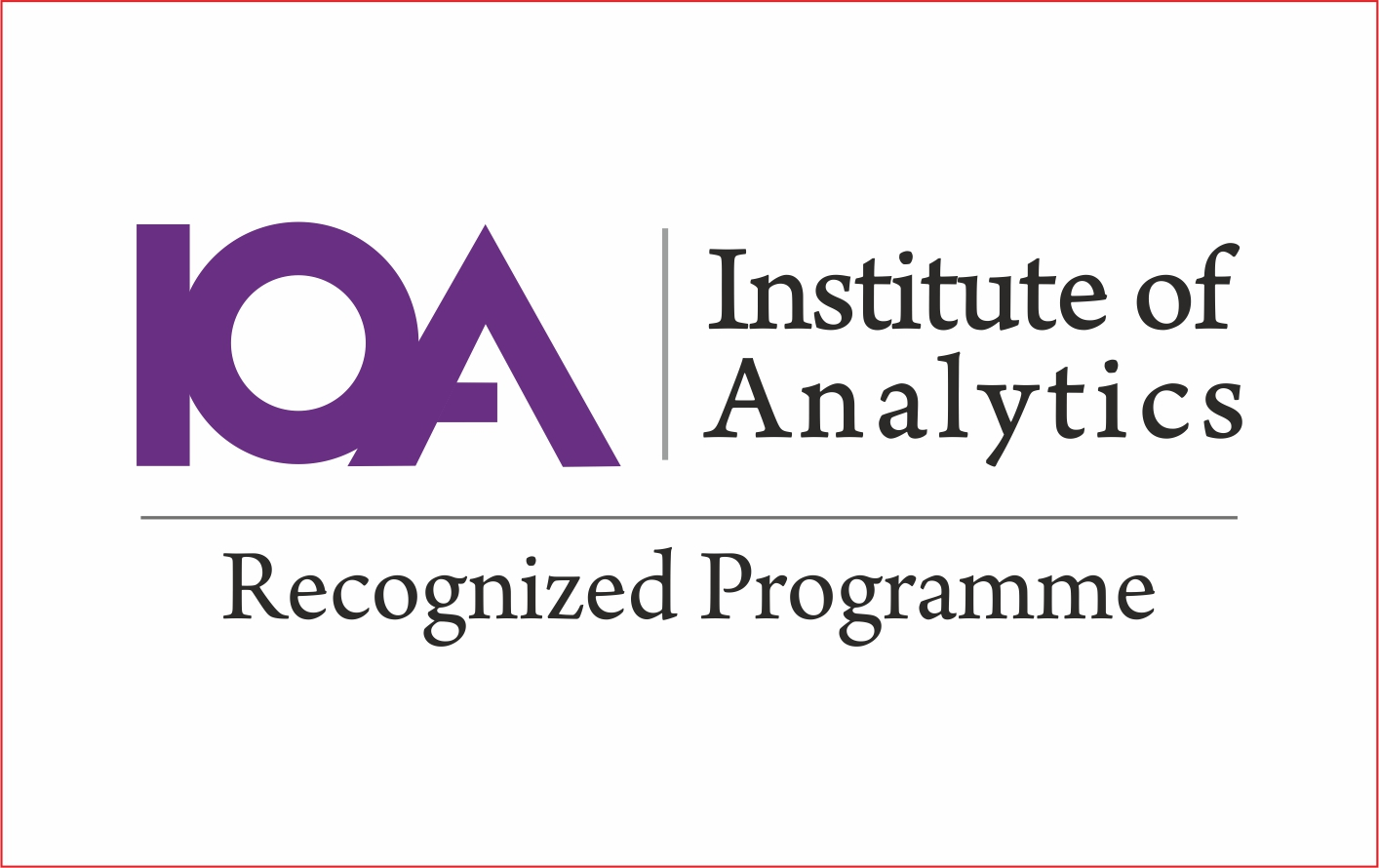Business analytics works best when it’s applied to real problems. The Master of Science in Business Analytics MSc (Online) at Aston University is designed around that idea: learning by doing. Students use real data and tools to answer practical business questions, gaining experience that prepares them for analytical roles across industries.

In this article, we look at one of the programme’s case studies (the “latte launch backlash”), which explores how data can help organisations make better decisions when things don’t go exactly to plan. It’s a clear example of what you’ll learn in our Master of Science in Business Analytics MSc (Online) programme, and how those skills translate directly into the workplace.
You can also hear from Aston’s academic team as they unpack this real-world scenario and explain how students use analytics to turn data into strategy on YouTube.
What is business analytics?
Business analytics is the process of using data, technology, and statistical methods to guide business decisions. It helps organisations understand what is happening, why it’s happening, and what to do next.
Through the Master of Science in Business Analytics MSc (Online), you can learn to interpret different types of data, from sales figures and customer records to social media and text feedback. Using tools such as Python, R, SQL, and Excel, you will be able to clean, analyse, and visualise data to produce insights that leaders can act on.
What can you do with an MSc in Business Analytics?
Graduates of Aston’s MSc Business Analytics programme develop expertise that are valuable across business, technology, and policy sectors. Typical roles include:
- Business analyst
- Data analyst
- Business intelligence analyst
- Operations analyst
- Risk analyst
Many graduates go on to lead analytics teams or become data-driven decision-makers in management positions.
Inside the “latte launch backlash” case study
One of the MSc programme’s most talked-about examples is the “latte launch backlash”, presented by Dr Shubhadeep Mukherjee, Programme Director of the MSc Business Analytics (Online) programme at Aston University. It challenges students to diagnose a real-world business issue using data.
The scenario
A fictional coffee chain, Brewbox, releases a seasonal drink: the pumpkin spice latte. The launch is heavily promoted but quickly sparks customer complaints and a social media backlash under the hashtag #PumpkinSpiceRage.
Students take on the role of business analysts and are tasked with answering:
Why customers are unhappy, and how should the company respond?
- Defining the business problem
The first step is to understand the issue in business terms, beyond the technical ones. Students learn to identify measurable questions, such as:
- Has sentiment declined since the product launch?
- What specific complaints are being raised?
- Are the problems operational, marketing-related, or product-based?
This approach reflects a key principle of the Master of Science in Business Analytics MSc (Online) programme: Analysis is valuable only when it supports business outcomes like customer satisfaction, cost control, and sustainable growth.
- Working with unstructured data
The Brewbox case uses real-world data sources like social media posts and app reviews. These are examples of unstructured data, information that isn’t organised in spreadsheets or tables.
Students use tools such as Python and R to clean and prepare the data by:
- Removing duplicates, links, and symbols.
- Tokenising text and reducing words to their root form.
- Filtering irrelevant content to reveal patterns and keywords.
This exercise teaches a critical skill: How to transform raw text into structured, analysable data.
- Analysing customer sentiment
Once the data is structured, students apply techniques such as sentiment analysis and text mining to uncover key trends. You’ll learn to visualise these findings through word clouds and basic dashboards.
In this case, the data reveals that customers love the drink’s flavour but are frustrated by app crashes and slow service. The insight reframes the problem: the product isn’t the problem, the experience is.
- Making recommendations
The final step is to translate analysis into action. Students propose recommendations such as:
- Addressing app stability before further marketing spend.
- Offering customer apologies or incentives.
- Communicating pricing and value more clearly.
You also want to select key performance indicators (KPIs) to track improvement, such as app ratings, sales recovery, and customer sentiment. These steps mirror how analytics functions operate in real organisations, linking data to performance management and strategy.
What this case study reveals about studying business analytics
The Brewbox case illustrates Aston’s distinctive approach to online learning:
- Applied, problem-led learning: Students work on realistic business challenges, not abstract models.
- Progressive skill development: The programme builds from descriptive to predictive and prescriptive analytics.
- Hands-on technical experience: Using tools like Python, R, SQL, SPSS, and Tableau, allows you to gain practical proficiency.
- Communication and impact: Every analysis culminates in clear, evidence-based recommendations.
These skills prepare graduates to operate as analysts, consultants, and strategic decision-makers across industries.
Why choose Aston University’s Master of Science in Business Analytics MSc (Online)
The Master of Science in Business Analytics MSc (Online) is delivered by Aston Business School, a triple-accredited institution (AACSB, AMBA, EQUIS) ranked among the top business schools in the UK.
Key features include:
- Institute of Analytics (IoA) accreditation, connecting you to a professional network of analysts.
- Flexible, online learning designed for working professionals.
- Modules covering descriptive, predictive, and prescriptive analytics, machine learning, and data visualisation.
- The Aston Global Advantage module, which develops leadership and employability skills.
- An independent research or consultancy project focused on your career or organisation.
Learn more about the full curriculum in A deep dive into a Business Analytics (MSc) programme from Aston Online.
See business analytics in action
The “latte launch backlash” is one of many real-world case studies that form the foundation of Aston’s Master of Science in Business Analytics MSc (Online) programme. Through these projects, students learn to investigate problems, interpret data, and present insights that drive decisions.
Watch the full case study video to see how Aston University Online teaches analytical thinking that makes an impact and find out more about our Master of Science in Business Analytics MSc (Online) programme.



